14 Myths About University Admissions – Busted!
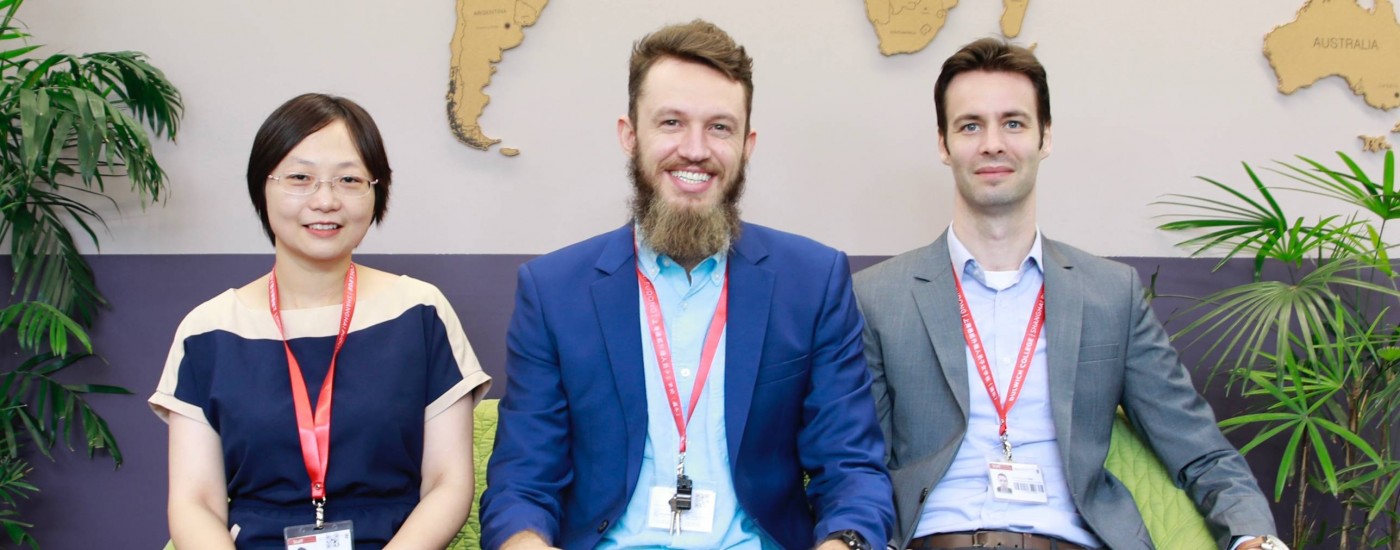
Over the next few months millions of graduates around the world will submit applications for universities, looking to take their next big step in life.
University admissions is an area where there are still many misconceptions which cause a great deal for anxiety for parents. To sort fact from fiction we sat down with our Dulwich Pudong University and Career Counseling (UCC) team of Mr. Luke Devlin, Mr. Rorie Macdonald and Ms Julia Ju for a mythbusting session.
Myth #1
Once you've graduated your University Counselor is done with you.
FALSE! At least at Dulwich Pudong it’s false. COVID has thrown a kink into everyone’s plans, matriculation to university is no exception. Our UCC team supports graduates who:
• transfer to a new school
• choose to do a gap year
• are obligated to do national service
Once graduates have taken that next step, then the relationship changes. Our UCC team maintains close contact with our alumni who provide great value to current students in understanding career opportunities via the Worldwise Alumni Network (WAN).

Myth #2
Applying to many universities is a good idea to hedge your bets.
FALSE! There is a saying “cast a wide net to catch a big fish”. That may work in the ocean, but in the world of university applications it’s almost exactly the opposite: the wider the net, the more things slip through.
“You want to be a sniper, not a machine-gunner,” explains Mr. Devlin. “It’s much better to focus on a small set of universities which are a good fit for you.” Our graduates average only 5.2 applications per student, indicative of the fact our students are clear about the pathways which are best for them and are well equipped to pursue them.
Managing applications to many universities decreases the amount of focus you can put into each application. In the world of university applications, quality trumps quantity every time.

Myth #3
Each applicant should have at least one Early Action/Early Decision (EA/ED).
FALSE! It’s commonly supposed that Early Action/Early Decision gives you a better chance of acceptance. Whilst there is evidence suggesting that is statistically true, it’s not for the reasons you might suppose.
The reason the ED application success rate tends to be higher is because the quality of the applications tends to be higher. Because ED decisions are legally binding, only those students who are absolutely sure that this is the right university for them and who have done the necessary groundwork well in advance choose to go down this path.
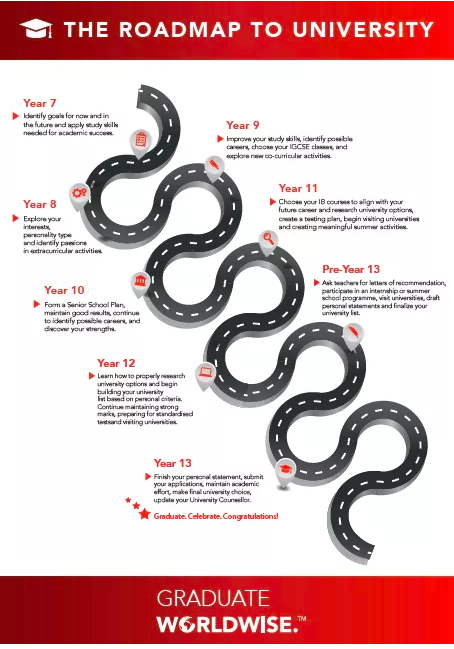
Myth #4
COVID has skewed admission requirements so that students who did well on the IB are now at a disadvantage.
FALSE! We all know that globally many students were unable to sit actual IB exams because of COVID. As a consequence there is a perception that IB scores have been deprioritized in the admissions criteria. That’s simply not the case. Mr. Devlin shares, “The admissions requirements have not moved. The bottom line is that you can’t be punished for doing well.”
In fact, because our students were able to be on campus and continue having valuable face time with teachers, they have been able to build those relationships which are so crucial to providing authentic, personalised, and insightful recommendations. If anything, our students stand to benefit.
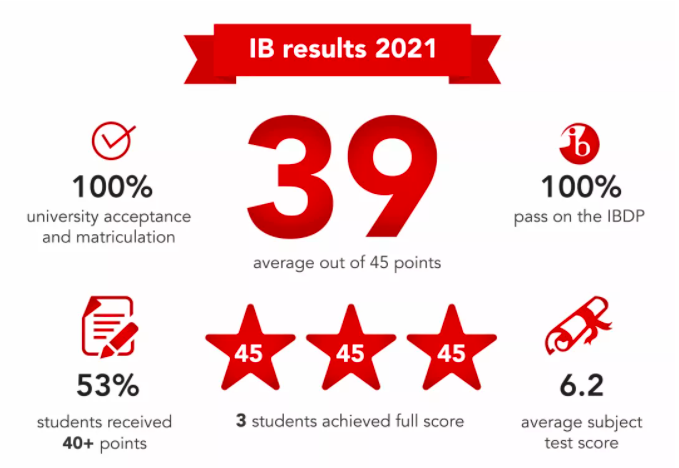
Myth #5
A good University Counselor can get a student into a top university.
FALSE! “We don’t get students into university, students get themselves into university,” Mr. Devlin explains. “University counselors are there to empower them and provide guidance to the process.”
University application is where the rubber hits the road for many students. Those who have been empowered over the course of their educational career to make their own decisions, identify their own interests, and take responsibility for themselves are in a much better position than those who have been hand-held the whole way with major decisions made for them.
That’s why student agency is a key pillar of a Dulwich education and one of the reasons our students continue to be attractive to the top universities in the world.

Myth #6
A student should get academics under control before making time for extra-curriculars.
FALSE! Some parents think time spent on extra-curriculars means less time for core subjects. This can be particularly worrying for parents who feel their children aren’t where they need to be academically. But Mr. Devlin has a different take: “Make the time. Your IB score doesn’t carry as much weight after university as you think it will, but the interests and skills you develop most definitely will.”
He adds that students should be constantly thinking about their personal growth. Academic results are important, but more important are your skill set, your capabilities, and what you have to offer beyond just the numbers. “Communication skills, adaptability, and leadership skills don’t have an expiration date,” he says.
Don’t overlook the critical role that showing progression plays in admissions. “You don’t start off as president of the club,” Mr. Macdonald explains, “whether that’s playing a sport or an instrument, or volunteering, or an academic subject, universities are looking for demonstration of commitment and progression of skills over time.” To show that progression, it’s better to get started earlier.

Myth #7
You are at a disadvantage applying to U.S. universities with an international degree such as IB.
FALSE! People mistakenly believe that if you’re intent on university in the U.S., then AP is your best bet. Not true. Historically around 30% of our graduates have gone on to U.S. universities. The IB produces students who are well-rounded and academically accomplished with the Extended Essay serving as the capstone project many U.S. universities are looking for.
And when it comes to college credit, IB is not disadvantaged versus AP with many U.S. universities have policies in place awarding credit for IB scores, allowing you to save time and save money. There are also many IB specific scholarships out there, which, in itself, speaks to the high regard in which U.S. universities hold the IB.
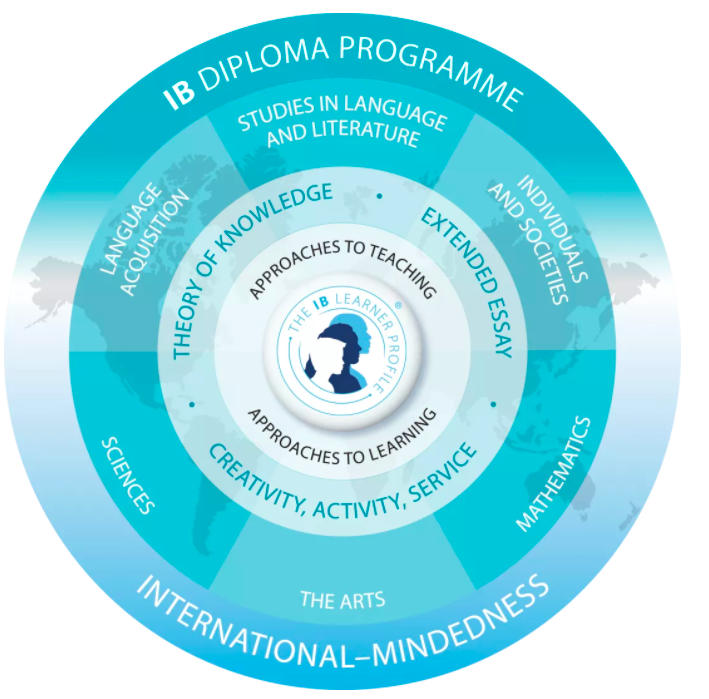
Myth #8
Rankings are good indicators of academic excellence.
FALSE! This one is always controversial. Rankings such as QS or US News & World Report take in a number of factors, but “quality of teaching” or “student experience” are not usually among them. Rankings tend to rely on easily collected “objective” metrics like professor salaries, faculty-to-student ratio, endowment size, alumni giving, research citations, and acceptance rates whilst ignoring the student experience on campus.
Furthermore, rankings create an echo chamber where applicants aim for the top-ranked universities which drives down the acceptance rate which keeps the university at the top of the list. All too often the actual student experience doesn’t match up.
Says Mr. Devlin, “University rankings are not measuring student outcomes 10 years after graduation or how deeply professors are invested in student success, because these are hard to capture. If you’re looking for best fit, then student experience should be at the top of the list.”

Myth #9
Do things because they will look great on your CV.
FALSE! In university admissions (and in life) authenticity trumps strategy. “Develop in the way you want to develop,” advises Mr. Devlin. “Where do your interests lay? What are your values? What kind of impact do you want to have in your community? Be true to yourself. That’s going to stand out much more to an admissions officer who may only have three minutes to view your application.”
That’s not to say you should only do things that you like; life is too easy that way. Challenging yourself is a great way to build your character and find out what you really value, but “because it looks good on a CV” isn’t a reason to do anything you’re not fully invested in.

Myth #10
You should take SATs early and often.
FALSE! Everyone wants to do their best on this important test, but you shouldn’t overvalue it to the detriment of other things. Stanford used to famously say that they reject more perfect scores than they accept. Taking the SATs too often can actually be counterproductive.
The second half of Year 12 is the earliest we recommend taking the SAT, as the IB course will naturally prepare you for it. You’re better off spending your time finding out who you are, what your interests are, and developing yourself.
Myth #11
Doing a summer programme at your dream university is going to help you get in.
FALSE! It comes back to authenticity. Are you doing that summer programme because you are really passionate about it or are you just ticking a box? What a summer programme at a prospective school can do is help you understand if the campus culture is right for you. You’ll learn quite a bit about a campus and a community from spending time there. But, unfortunately, taking a summer course in rocketry at CalTech won’t give you an inside track to admission.
Myth #12
Boarding school gives you an advantage when applying to university.
FALSE! Many parents erroneously believe if their child is intent on a UK or a U.S. university then boarding in that country gives them a better shot at getting in. In many ways it’s actually the opposite. When a student changes school in the final four years, it can represent a significant disruption to their development and ultimately to the applicant profile they present.
Mr. Devlin reminds us that steady progression is what universities are looking for - finding an interest, building on that interest, showing leadership within it, and demonstrating the wider impact you can make through it. Our University Counselors refer to it as LIDI – leadership, initiative, dedication, and impact.
Says Mr. Devlin, “You’re in a community where you already have relationships, where you already have human capital. Switching schools to a totally new environment puts that at risk. It may work out, but you also may miss out on the benefit of teachers who are already there to advocate for you.”

Myth #13
Going to a top school is more important than what you study there.
This is a tough one; there’s no black and white answer. One thing is for sure, though, high scores provide no guarantee of admission.
If you’re applying to the UK system, it is definitely important to know what you want to study as there is less flexibility to change after your matriculation. As Mr. Devlin points out, “The last thing you want is to find yourself in a race you’re not sure you even want to run.”
In the U.S system on the other hand where you have more flexibility during your course of study, knowing exactly what you want to study may not be as important as the overall academic profile of the university. That being said if you’re at CalTech and decide you want to study medieval poetry, you’re not going to have optimal outcomes.
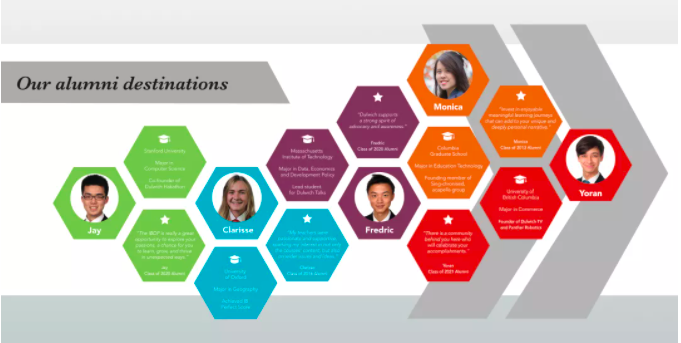
Myth #14
University Counselors are basically just application managers.
FALSE! Our UCC counselors do much more than give advice on common app essays and remind students of deadlines. At every step of the way our UCC counselors act more like life coaches who advocate for the student internally within the College and externally. This means everything from introducing students to decision-making strategies to deep-diving with them into how careers are shifting. If your school is not providing that level of service, you may want to re-consider your school choice.
Our 100% Guarantee
We are proud that 100% of our graduating class of 2021 were accepted at their first-choice university. A remarkable achievement! Even though that may not be the case every year, we do have a 100% guarantee:
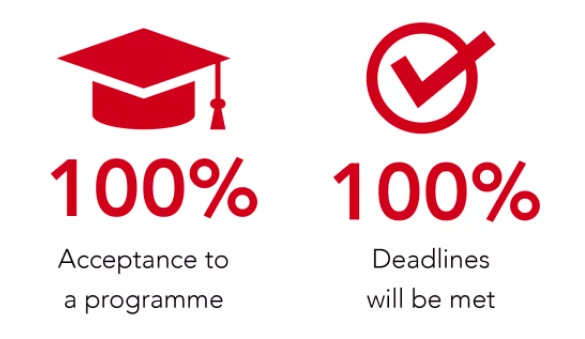
In the last 10 years, all of our students have had a programme acceptance after graduation, a fine testament to our approach to university counseling.










